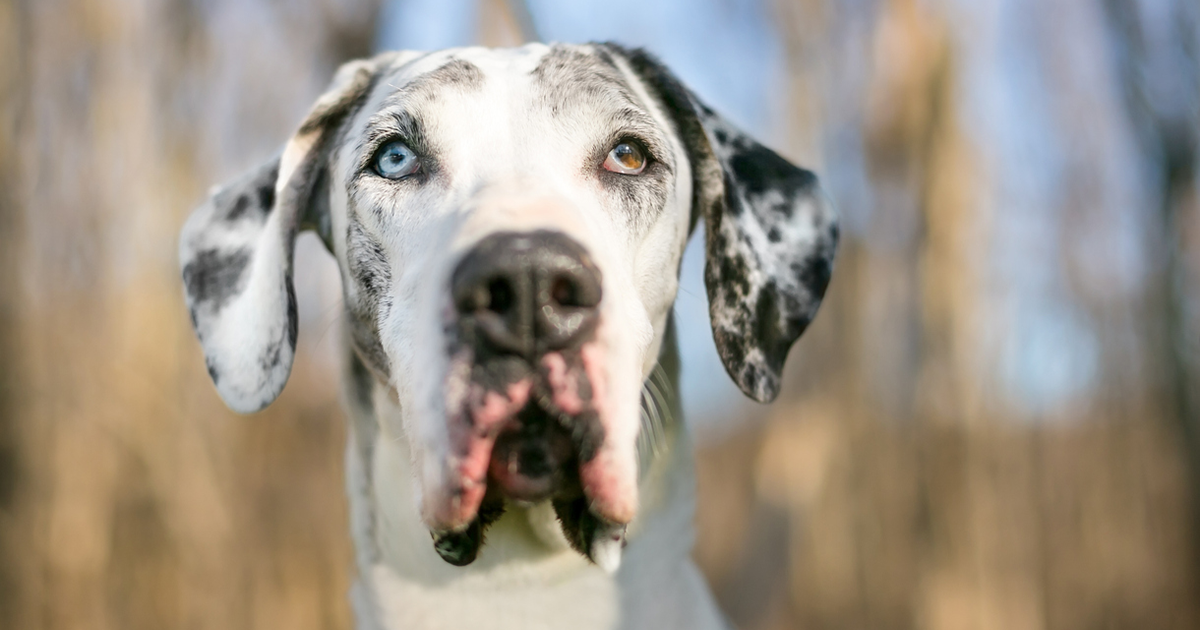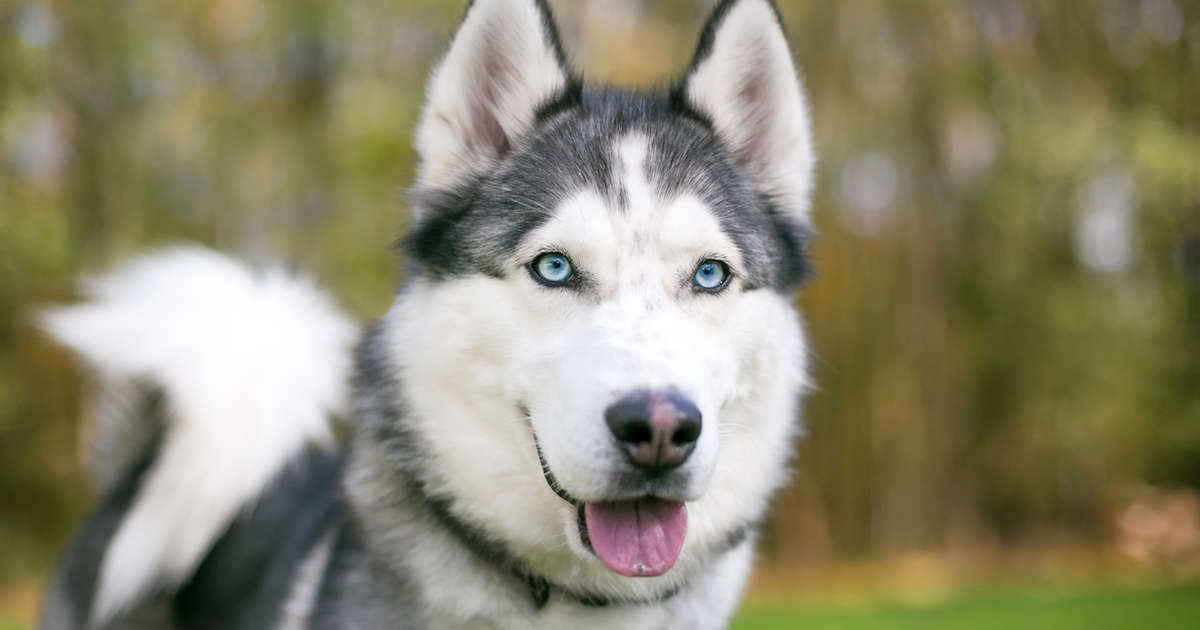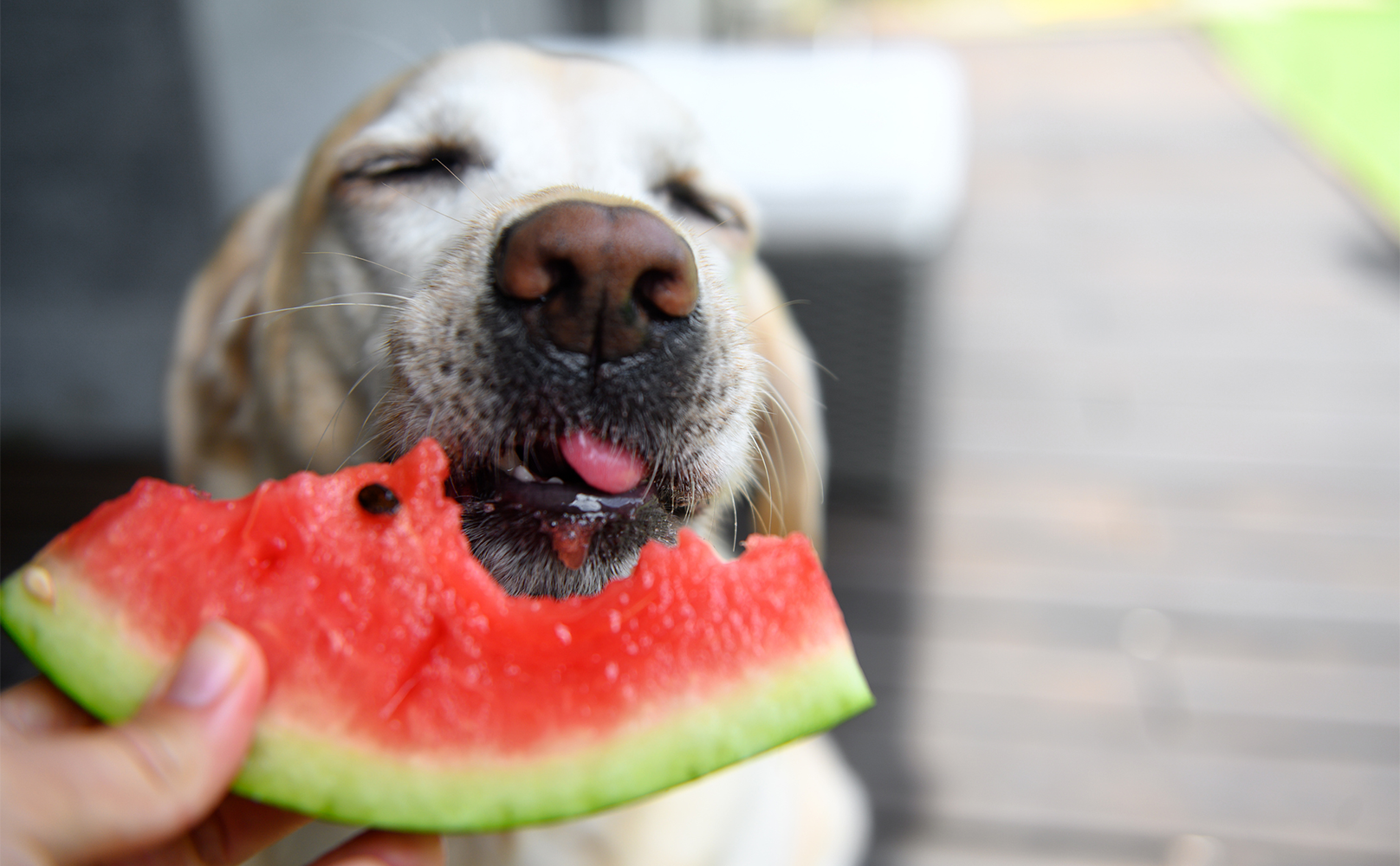In Arin Greenwood’s newest YA fiction book YOUR ROBOT DOG WILL DIE, systematic euthanasia has left dogs nearly extinct following an experiment with disastrous results. Dogs turned on humans and lost the ability to wag their tails, and the remaining handful of “Organic” (not robotic) dogs were relegated to a sanctuary on Dog Island.
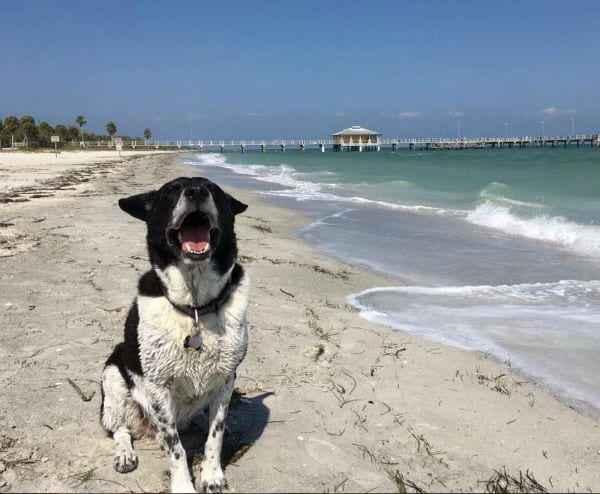

17-year-old Nano Miller and other Dog Island residents now test robot dog companions built by company Mechanical Tail, but that means having the lifelike family members torn from their arms each year to be replaced by a newer model. When Nano stumbles upon a real-life puppy (wagging its tail!), her life changes completely, and the information she discovers calls into question what it really means to be humane.
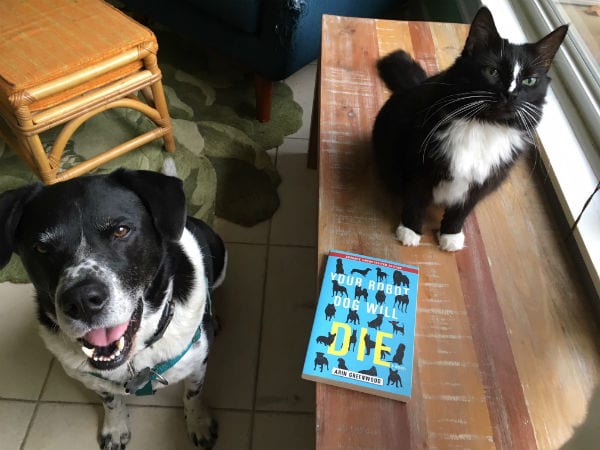

We caught up with Arin Greenwood, who is no stranger to the world of animal welfare, and who has a particular soft spot for dogs. (That black and white stud in the photos is her pup, Murray.) A former lawyer-turned journalist-turned novelist, she knows her way around a good story, and a good question.
Check out our Q&A, and an excerpt from YOUR ROBOT DOG WILL DIE!
Near-dog extinction has got to be the worst possible future imaginable. How did you come up with the idea for this story?
Robot Dog got started when I had this strong feeling of wanting to set a novel at a dog sanctuary. Basically, when you write fiction you get to live inside the world you are creating—and I wanted to live at a place called Dog Island.
I pictured Dog Island as a quirky, lovable place that readers would actually want to visit. I dreamed that people would want to go open their own animal sanctuaries, after reading the book. I also hoped people would want to adopt real dogs, and to live with their own robot dogs.
And I had these characters in mind, too – Nano, a 17-year-old girl who has lived on Dog Island for her whole life, and who loves it there. Her two best friends, Jack and Wolf. Nano and Wolf are falling in love, which makes the two of them even happier (but Jack much less happy). There’s Nano’s family, and this whole community of lovable oddballs who share a commitment to care for the last dogs in the world. This place is paradise to my characters. They don’t want anything to change. (Except for Jack, who’d like Nano and Wolf to stop kissing so much.)
That’s actually how I felt about Dog Island, too – as I was writing the book, I wanted to be on Dog Island, and I didn’t want anything bad to happen.
Unfortunately that’s not how novels work! There had to be some pretty high stakes. So even though it broke my heart, I made myself write about a world where dogs are nearly extinct and the remaining dogs are threatened—and so are the people who care for the dogs. Nano and her best friends discover something very dark about this place they love. They have to grow up really fast, to protect the dogs, and to protect Dog Island and their families.
I hope above all, people see Robot Dog as a celebration of dogs, and of our bond with dogs. That’s what I intended.
YOUR ROBOT DOG WILL DIE may be a YA novel, but I’d argue it’s a meaningful read for teens and adults of all ages. Did you have any hopes for what readers might take away?
I’m so happy you asked this. I want people to be moved and entertained by my book, and to come away from reading Robot Dog feeling even more committed to making this world a kinder place for animals.
If anyone goes and adopts a dog after reading my book, I sincerely hope they will get in touch to let me know. I’m really easy to reach, and I love seeing pictures of people’s pets.
Your duo on the frontlines—Nano & Wolf—have some pretty interesting names. How did you choose them?
I called my grandmother Nano. It was supposed to be Nana, and I just got it wrong, but the name stuck. I was the first grandkid, and all the others called her Nano, too. She died when I was just a little kid, and I wanted to pay tribute to her.
When I first started writing the book, Wolf was named Elvis. That just didn’t sit right, though. He didn’t seem like an Elvis. Then I realized that of course he would be named Wolf—what else would a guy born on Dog Island be called?
I’m going to assume you grew up with animals. A lot of animals.
I’ve always been nuts for animals. I became a vegetarian when I was six because I loved animals so much, and was that kid who ran up to every dog in the street, even the ones who were barking and trying to be scary. The principal of my elementary school used to call me into the office whenever there was a stray cat on campus, for me to take them home.
Our family had dogs for most of my time growing up. Though after our first dog, Dylan, died when I was little, my parents went about six years without us having a dog. Those were terrible years. I’d beg and beg for a dog, promise never to ask for anything else if we could get a dog. (No one believed me but I meant it.) Finally, when I was around 12, my parents relented and we got Sunshine. Sushi, as we called her, was such a wonderful doggie. She died of cancer when I was in college.
My parents decided not to get another dog after that. They are surprisingly stubborn about not bringing home pets willy nilly. Then I graduated from law school—which is a whole other story – and took a job on a tropical island out near Guam. Pets coming to the island had to be quarantined for a long time, and so the dog I’d adopted in law school – a pit bull named Barky—went to live with my folks in Rhode Island. My whole family became pit bull advocates because of Barky. My brother is actually a lawyer for Best Friends Animal Society, advocating for dogs. It’s really a family thing now.
These days I live in St. Petersburg, Florida, with Murray the dog, three cats – Elfie, Jackie, and Chappy. and one very tolerant husband named Ray.
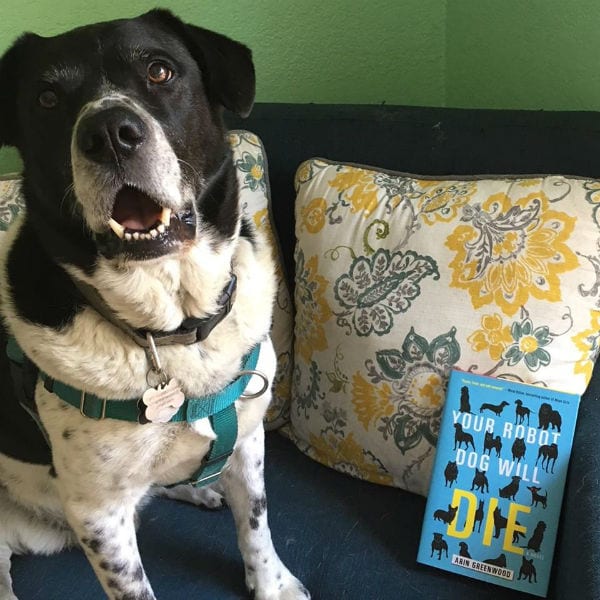

Is this what ultimately led you to decide on a career dedicated to animal welfare?
I just got so lucky, to be able to work in animal welfare. When I was hired at The Huffington Post back in 2011, it was to help start HuffPost DC. We had a broad mission to write about interesting things going on in and around the nation’s capital. Animals, of course, are interesting—I started writing a ton of stories about pet adoption, wildlife rehabilitation, great things our local shelters were doing to save more animals.
And I loved it. I loved everything about writing these stories. The more I wrote about animals, the more I wanted to write about animals—this beat touches on everything: saving lives, helping communities, law and policy, even just plain old cute and heartwarming videos. Best of all, animal stories do good in the world—you can help dogs get adopted, you can help spread good ideas, and call attention to important issues. Readers love them, too.
The people who work in animal welfare – the shelter workers, rescuers, advocates, volunteers, adopters, fosters, all of them – are incredibly inspiring to write about, as well.
After a while of me writing exclusively about animals, HuffPost finally changed my job title to animal welfare editor and it was like a dream come true. When I left HuffPost a couple of years ago, I was lucky enough to get to keep freelancing about animals for a lot of publications—and now I get to write fiction about animals, too. I feel very fortunate to get to work in a field that I love so much.
You have done and continue to do a lot of writing about animals (especially dogs), many involving the darker side of human-animal relationships and their aftermath. YOUR ROBOT DOG WILL DIE touches on several modern day realities of animal abuse and neglect. Does it ever become an easier topic to stomach?
Never. It never gets easier to stomach. I try to focus on the people who are helping instead of on those who are doing harm. But it’s still hard. It’s not for nothing that people who work in animal welfare suffer from terrible burnout.
Were there any scenes that ended up on the cutting room floor?
So many scenes ended up on the cutting room floor. Just for one example, I wrote a whole section where Nano and some other characters take a trip to New York City, to visit with a bioethics professor at Columbia. They all went to eat at a Cuban diner. I think I was really hungry when I wrote that scene and wanted some black beans and coffee.
The Mechanical Tail company makes some impressively lifelike robot dogs. What would yours look like, and what would you name it?
Oh gosh, I just keep picturing Barky, my pit bull. She was a 50-pound orange girl with gigantic ears and the cutest face. It would be a huge comfort to have her back again, even in robot form.
I suspect there might be a few readers inspired to adopt a new best friend after finishing this book (ahem, me). That’s got to be pretty amazing to think you encouraged someone to go out and save a life.
Please send photos if you do adopt! I’m really easy to find online. I really, truly love hearing from people about their pets. It’s been one of my favorite parts of being an animal writer—people send me pictures of their dogs and other critters, and it makes me so happy.
####
Soho Teen releases YOUR ROBOT DOG WILL DIE on April 17th, and you can pre-order today!



